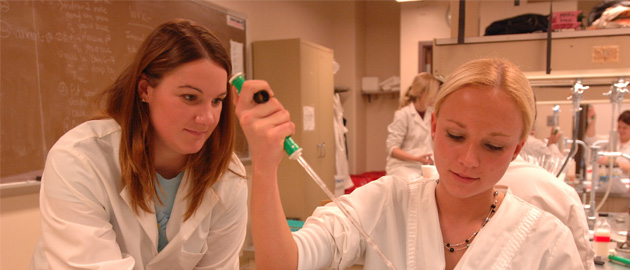

The partnership brings to the IGG the extraordinary resources and scientific expertise present at the NIH, one of the largest and most renowned biomedical research centers in the world. The IGG has also established a partnership with the National Institutes of Health in Bethesda, MD. The faculty of the Immunology Graduate Group (IGG) are drawn from eight different units of the University of Pennsylvania, encompassing a broad spectrum of research interests: the College of Arts and Sciences the School of Medicine the Hospital of the University of Pennsylvania The Children's Hospital of Philadelphia the School of Dental Medicine the School of Veterinary Medicine The Wistar Institute and The Abramson Family Cancer Research Institute. Recognizing the need to create an environment where researchers could be adequately trained in the multifaceted aspects of immunobiology, Penn became the first medical school to establish a separate degree-granting PhD program in Immunology. Combating Racial Inequities Committee (CRIC).IDEAL (Inclusion, Diversity, Equity, and Learner) Research.Students have also had their films screened at local festivals. There will also be opportunities throughout your course to attend international film festivals, which have previously included Berlin and Tribeca (New York). Meanwhile, you'll have access to state-of-the-art film, editing and studio facilities, including sound and dubbing equipment, and a cinema on our campus, whose beautiful parkland setting provides the ideal location for your short films. There's also an opportunity to earn course credits by undertaking a work placement in any area of the creative industries: TV, film, online and print media, arts and campaign organisations, museums, art galleries, theatres or community projects.Īs London’s only campus university, our picturesque yet easily accessible location means you'll be studying film while immersing yourself in the creative culture of the capital at film festivals, studios, galleries and pop-up cinemas. We currently offer a module on career preparation, so you can understand your career choices, refine your interests, evaluate your strengths and weaknesses, and present a creditable application.

Students who choose the film production route have the opportunity to screen their film at the British Film Institute, Southbank (BFI), at the end of year three. If you can't decide and enjoy both, you can continue to give both equal weighting. You’ll be able to deepen your understanding of film history and theory while continuing to pursue your filmmaking ambitions.Īs you move through the course, you can choose to focus on the theoretical study of film or the practical side of filmmaking. You'll broaden and deepen your critical awareness of the diverse formal and experiential possibilities of cinema, both as they have developed in the past, and as they are transforming in the contemporary moment.įrom your first semester, you'll be introduced to the use of video equipment, group work and key roles of the production team and facilities, and produce a short drama on digital video. Looking beyond the story, you’ll consider how meaning is created through film language and visual aesthetics. You’ll explore everything from fiction to documentary, experimental film to world cinema, and television to the internet, as well as screenwriting, animation and cinematography. Our Film degree promotes a balance between the practical and theoretical. You’ll delve into film history, theory and production, and learn about the latest trends in digital and 3D cinema. Our leading film scholars and award-winning filmmakers will help you build a strong foundation for a career in film.


 0 kommentar(er)
0 kommentar(er)
